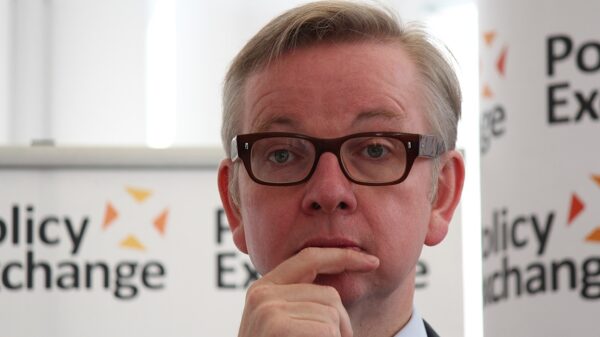Staff writer Fred Taylor examines the state of the British economy and questions the narrative that the war in Ukraine is fully to blame
The situation of the UK economy does not look good. Our economy is contracting, energy bills are increasing and inflation is off the charts. To make matters worse, the impact of all of this is hitting the worst-off the hardest. Food bank usage is at historic highs, one in six people are living in “relatively low income” and recent research suggests that the bottom 20% of households only have £2.66 in weekly discretionary income, down from £55 last year.
In an exclusive comment for Roar News, Conservative MP Sir Gary Streeter blamed these “extreme circumstances” on “inflation following the lockdown and escalating energy prices caused by the war in Ukraine”. However, there may be one other factor that Mr Streeter has let slip his mind: twelve years of Tory mismanagement.
Cameron
It all starts with David Cameron, who made many consequential mistakes. Firstly, his coalition government refused to implement his predecessor, Gordon Brown’s, nuclear energy proposals because they would “only come on stream by 2021 or 2022″. Then, he blocked plans to make homes more energy-efficient and cut back government support for renewable energy schemes, policies he called “green crap”.
As a consequence, our homes leak heat three times faster than German homes, the percentage of our energy that is imported hit 36% in 2018, compared to 13% in 2005, and under 20% of our energy is generated by nuclear sources, compared to more than 70% in France. Cameron’s premiership left our energy infrastructure totally wrecked and our country very prone to a global energy shortage.
Johnson
We then fast forward to Boris Johnson, who took office in 2019. It’s hard to imagine a better way to respond to the war in Ukraine than the one he took. He immediately granted a large number of weapons and large amounts of financial aid to Ukraine and hit Russia with the “largest pack of sanctions” ever. Johnson emblematically announced to the world that “Putin must fail”.
It’s a shame that the response to the domestic pressures created by the war was nowhere near as admirable. Following the invasion, the boycotting of Russian goods created the first ever “global energy crisis”, and prices for basic items skyrocketed. The Consumer Price Index (CPI) hit 10.1% inflation in September. Labour started a campaign to introduce a windfall tax on energy companies in order to provide financial aid to those suffering the most. This was an attempt to ensure that the burden of the war would not be placed on the shoulders of the most vulnerable.
After initial reluctance and infighting, and weeks of waiting, the government finally proposed a budget. It had a windfall tax, yet it was offset against investment and only taxed 25% of windfall profits. It hit a perfect balance of incompetence: similar enough to Labour’s proposals to be politically humiliating but falling short of making any substantive difference. Just two months later, Johnson conceded the point when he announced that further support was needed.
This budget massively underestimated the extent of the cost of living crisis and, therefore, failed to provide any appropriate long-term solutions. It was the result of disorganisation and ideological infighting not serious policy-making.
Truss
After Johnson, came 2 long months of complete inaction by the Tories, who were preoccupied with a leadership campaign between Liz Truss and Rishi Sunak. In their campaigns there was talk of tax cuts and culture war issues but relatively little about how the next Prime Minister would deal with the cost of living crisis. Most notably, Truss was left stuttering after being repeatedly asked by journalist Laura Kuenessberg about what her plan was for the economy, an economy she would inherit under a week later.
Following on from these months of inaction, Truss came into power and announced that she would mass-borrow billions in order to fund tax cuts for the rich and to partially pay for energy bills.
This was not an effective solution, to say the least. It was clearly poorly thought-out and did not lift the burden from the shoulders of the poorest. While her energy bill reduction plan was good in principle, the fact that it relied on loans did nothing but pass the buck onto future generations. It was a cop-out, not a real plan. The infamous “mini-budget” caused absolute havoc. It destabilised the economy, sunk the pound, and hiked mortgage prices.
Again, we saw the Conservatives refrain from taking a serious and competent approach to the problems that faced our country. Ideology was placed above feasibility. Serious economists such as Tom Scholar were sacked, and expert bodies like the Office for Budget Responsibility (OBR) were not consulted. Chancellor Kwasi Kwarteng was replaced by the more moderate Jeremy Hunt but for Truss this was the equivalent of applying a plaster to a shotgun wound.
Sunak
Out of luck and out of power, Truss was swiftly deposed and replaced by Rishi Sunak. He came into power with the express purpose of being reliable and competent, tasked with cleaning up the mess that the past governments had created. The Autumn Statement was a strong step in the right direction: a rise in the minimum wage, benefits increased in line with inflation, a real-time rise in public spending, and the ‘triple lock’ on pensions being maintained. Even Labour’s proposed windfall tax was more-or-less finally imposed. But it is too little, too late.
Just before Hunt’s budget, the OBR made the dire announcement that the UK is set to receive the biggest hit to living standards on record. Growth has flatlined, and the UK is predicted to be in a recession for the next 2 years. The disproportionate effect of the war in Ukraine on the British economy can only be explained by Conservative incompetence.
Blaming the War
If Cameron had invested in nuclear energy and made our homes greener, we would not be suffering so much from the global energy shortage. If we had provided a clear, competent plan on how the energy crisis would be managed from the very start, investors would have been reassured. If our leaders had not spent the summer infighting, we could have prepared better for the winter. If we had not allowed Trussonomics to sink the pound, our economy would not be receding as much as it is.
The fact is, all of our allies are faring much better from the conflict: Russia is the only major economy set for worse economic growth than the UK. Our GDP is 0.4% smaller than pre-pandemic levels, while the Eurozone’s economy is 2.1% larger, and the US is also up by 4.2%. Furthermore, inflation in the UK has surpassed 10%, while it’s at 8.5% in Germany and just 6.8% in France.
This can be explained by other countries preparing for and reacting to pressures created by the Russian war in a far more competent fashion. France used its investments in nuclear energy to cap energy price rises at 15%. Spain used a windfall tax to lower energy costs and provided a range of free public transport measures to lower the burden on commuters. The EU set out plans to reduce consumption to decrease demand and lower prices, amongst other measures.
The Conservative government’s lack of coordinated preparation or response to the cost of living crisis has made the most vulnerable in our country take the brunt of Putin’s war. We have everything to be proud of when it comes to supporting the people of Ukraine but we should be ashamed of who is paying the price. The next time the government tries to use the war as a justification for the terrible state our economy is in, you should have none of it.


















